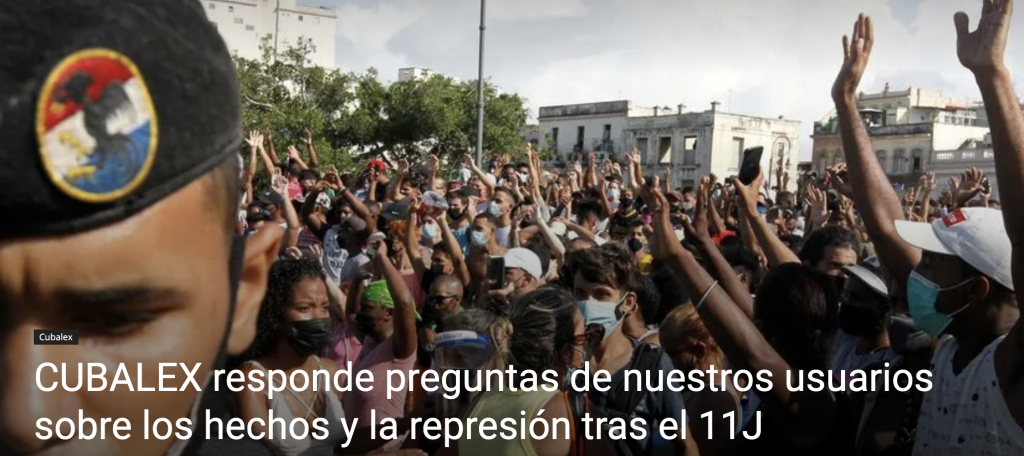Why shouldn’t the July 11 protesters be prosecuted?
The protesters of July 11 cannot be prosecuted for the crime of public disorder, or any other. Firstly, Article 56 (New Constitution of Cuba, 2019) provides that “the rights of assembly, demonstration, and association, for lawful and peaceful purposes, are recognized by the State as long as they are exercised with respect for public order and compliance with the precepts established in the law.”
What is the penalty for the crime of public disorder?
The lawyer adds that the criminal code provides for a prison sentence of from 3 months to a year, for a person who without just cause, in public places, entertainments, or large gatherings, shouts alarms, or utters threats of a common danger. Obviously what happened on July 11 has nothing to do with the crime of public disorder.
The July 11 protesters did not commit a crime, they exercised a right that is recognized in the Constitution. The law conditions the exercise of the right of demonstration to what is established in the law.
What is the law that governs the procedure to request permission for or to give notice of a demonstration?
There is no legal rule, therefore no type of crime is designated. The people who came out on July 11 to shout “Freedom,” to demand respect for their rights, were not committing any type of crime. It is also worrying that the people mobilized by Díaz Canel are not being judged. Are they selectively applying this law? Of course! They’re only applying it to those people who demonstrated against the system.
The people who participated in the July 11 protests as counter-protesters, members of the “rapid response brigades,” are not on trial. That’s called selective application of the law – applying it in a discriminatory way according to one’s way of thinking.
Let us not forget that the right to think freely — freedom of conscience, thought, and religion — is an absolute right, which does not admit restrictions even in times of pandemic such as we are in now, or in exceptional situations. I add that Cuba has not declared a state of emergency to restrict human rights.
It is true that it is an epidemiological situation, but if Diaz-Canel called a demonstration days after July 11 in the middle of a pandemic, what is the difference between one and the other? Well, the difference is the selective application of the law, and discrimination when it comes to prosecuting these people for the public interest.
Making an example is what they are doing.
They are seeking that Cuban society, that Cuban citizens, will inhibit themselves from expressing publicly and exercising their rights that are well-recognized by the constitution. All these proceedings against your families and against your friends, are so you in your community will not go back out again to demonstrate, to demand your rights, as recognized in the constitution. And that is why it is necessary to broadcast that “freedom is not requested, it is exercised.” That is what they are punishing, that people have exercised their freedom.
Read more: What to do about arbitrary detentions in Cuba
Translated by Tomás A.

